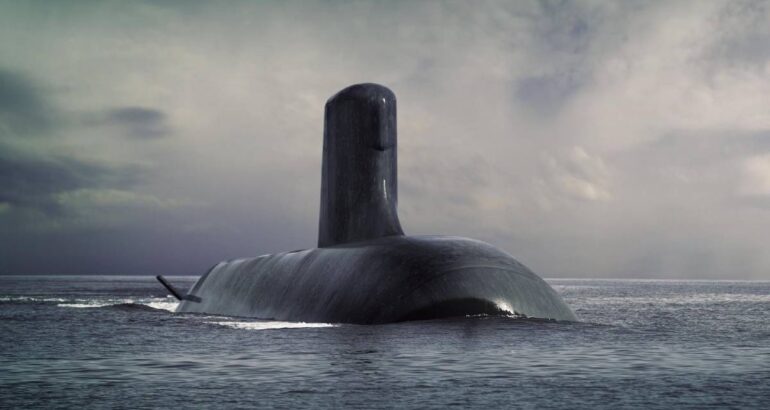
Australia’s decision to turn to Washington and London for nuclear-powered submarines to bolster its security was a “no brainer” for Canberra, but it is a decision that “went terribly wrong” with NATO partners, an expert in European defense matters said Tuesday.
Ivo Daalder, a former permanent U.S. representative to the alliance, said the United States decided to leave the Europeans out of the discussion that led to the new arrangement in the Indo-Pacific.
“Reassurance [of European allies] has been undermined for years,” said Daalader, now president of the Chicago Council on Global Affairs, referring to the Trump administration’s approach of questioning the value of NATO and the United Kingdom’s decision to leave the European Union.
To Europeans, the new pact cast doubt on the Biden’s administration’s pledge to be actively engaged with allies.
Speaking at the Center for Strategic and International Studies online forum, Jessica Cox, NATO’s director of nuclear policy, said European allies see the agreement – which also involves a range of technology transfers, the rotation of American forces to Australia, and the potential to homeport U.S. vessels in Australia – as not taking their interests into account.
“Russia is not going away” as a nuclear and conventional threat to European allies. While the “U.S. is the security provider of choice,” the questions for those nations now are what does Washington expect of them in the Indo-Pacific and what is the U.S. commitment to “extended deterrence” on the continent.
As the Australia-United Kingdom-United States [AUKUS] agreement was announced last week, she noted that the Pentagon is in the midst of its nuclear posture review.
One consequence of the AUKUS agreement could be a number of other European allies, other than France, reevaluating “strategic autonomy” for themselves. On the continent, Cox said they could turn to Paris or London and examine basing conventionally-armed missiles on their territory as a deterrent to Moscow.
She said one gauge of European opinion on its own security needs might be found in Germany’s upcoming elections later in September.
Looking at the new security agreement from Japan, “Australia is a canary in the coal mine” when it comes to countering China’s ambitions in both the Indian and Pacific oceans. After noting that Tokyo and Berlin had bid on the Australian contract in 2015, Hideshi Tokuchi, president of the Research Institute for Peace and Security in Japan, said the “cancellation [of the French contract for 12 conventionally-powered submarines] seemed inevitable.”
He cited the French project’s escalating costs, delivery delays and not providing Australia with promised new jobs. The danger to Australia’s security from the delivery delays could leave Canberra with no viable submarine fleet.
But Tokuchi added that AUKUS is still working out details on the delivery of the expected eight submarines and the impact on Australia’s defense industrial base.
AUKUS’ value to the region is keeping the United Kingdom involved in the Indo-Pacific. He said the contract for the nuclear-powered submarines “is just the first step” in the framework of security arrangements.
“France is a Pacific power anyway,” with 2 million citizens living on its territorial possessions there, and cannot turn away from the region.
“AUKUS will be added to the toolbox of a free and open Pacific,” which is a shared goal of Japan and India as members of the Quad, Tokuchi said. The Quad refers to the informal security arrangement between the United States, Australia, Japan and India. President Joe Biden is hosting a summit with leaders from the three nations in Washington, D.C., on Friday.
Although the United States has said the agreement with Australia on the sharing of nuclear propulsion technology is an exception to its policy, Jina Kim, a fellow at the Korean Institute for Defense Analyses, said it brought to mind a 2017 campaign pledge by South Korean President Moon Jae-in to have Seoul build nuclear-powered subs.
To do that, she said the existing agreement concerning nuclear materials between the two countries would need to be revised from “civilian-use” only. Moon made his pledge as North Korea began testing submarine-launched ballistic missiles.
A change in policy for Seoul is unlikely, as Moon’s term nears its end.
The panelists agreed the AUKUS agreement and America’s withdrawal from Afghanistan with little to no warning or discussion emphasizes the need for closer consultation with allies to maintain trust in Washington’s commitment to them. This is especially true in how they all will deal with nuclear competitors like Russia and China and a power like North Korea.
“The best way to improve reassurance is to bring allies” into the nuclear discussion at a high level from day one,” Daalder said. “That’s true for allies in Asia and true for allies in Europe.”





